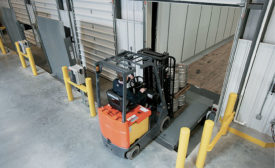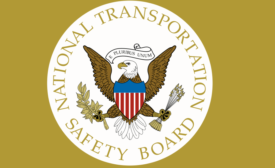Home » Keywords: » transportation safety
Items Tagged with 'transportation safety'
ARTICLES
A FairWarning Story
Move to ease path for driverless vehicles draws fire from safety groups
April 16, 2020
Automated loading dock equipment a boon for aging workforce
Eliminate backbreaking manual labor
November 1, 2019
Ala. trucking company won't keep on trucking
Feds find numerous safety violations after deadly crash
May 2, 2017
A FairWarning story
Blind spots in police reports hamper efforts to curb deadly crashes, study says
April 26, 2017
Become a Leader in Safety Culture
Build your knowledge with ISHN, covering key safety, health and industrial hygiene news, products, and trends.
JOIN TODAYCopyright ©2024. All Rights Reserved BNP Media.
Design, CMS, Hosting & Web Development :: ePublishing








